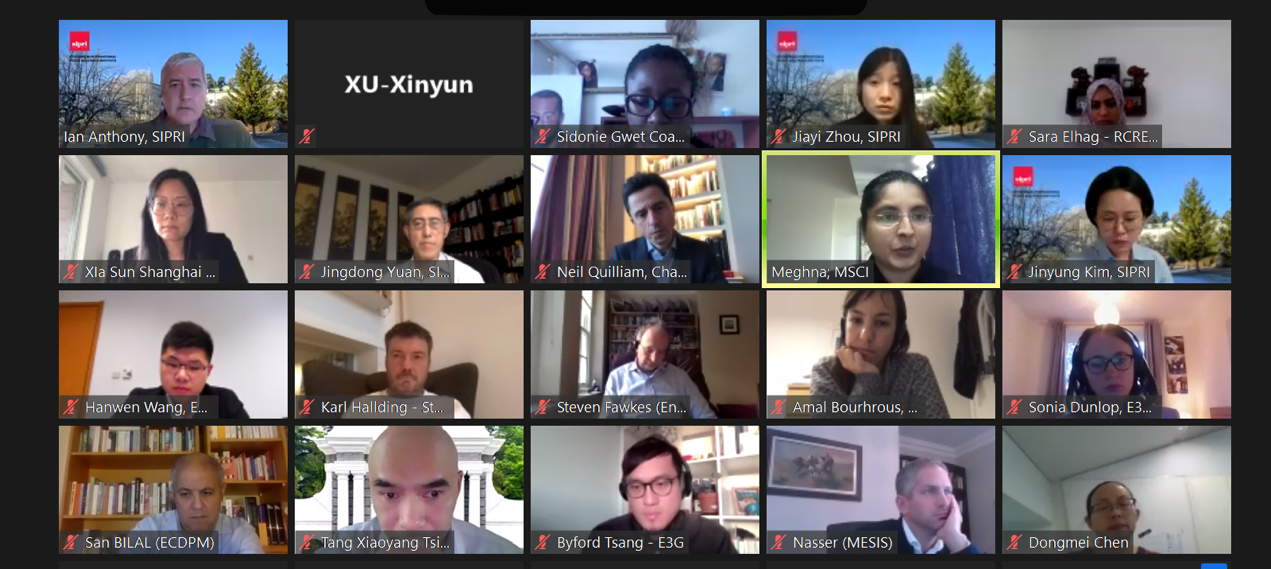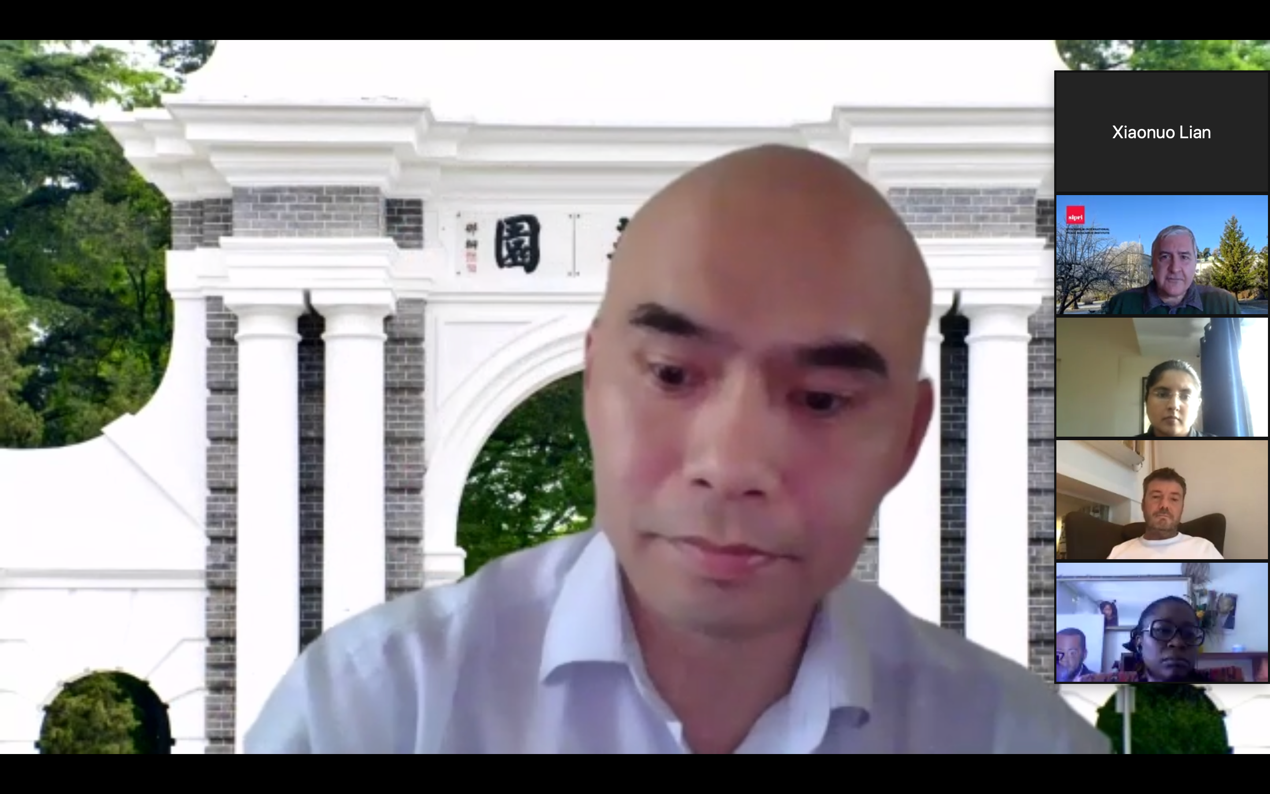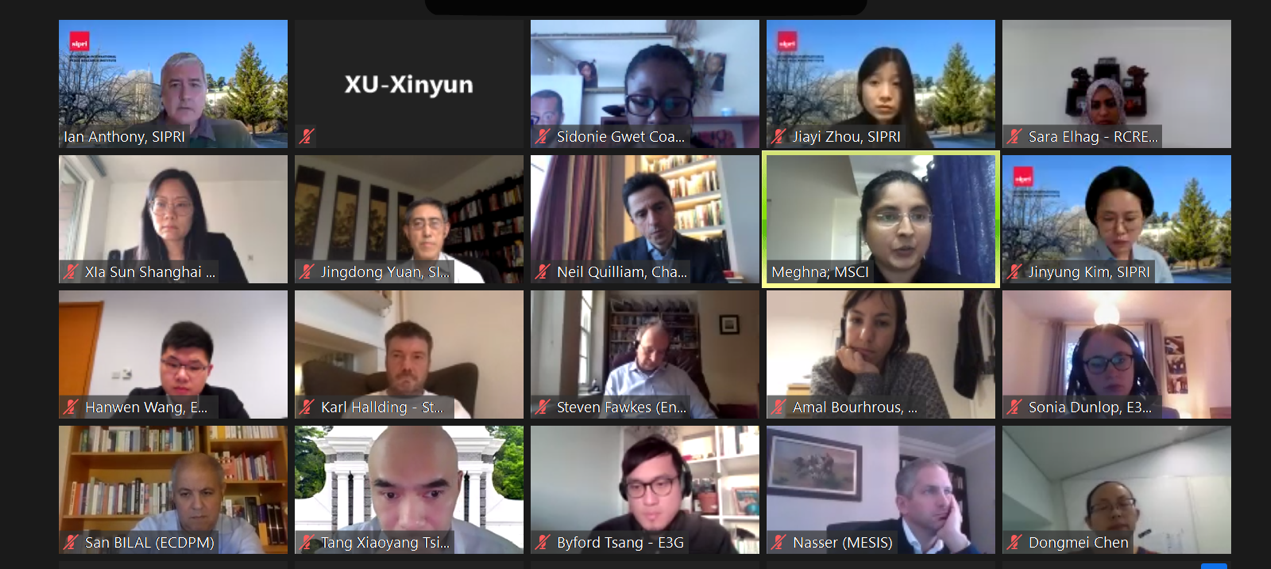On November 12, 2020, TANG Xiaoyang, China Forum expert, Resident Scholar of the Carnegie-Tsinghua Center for Global Policy and Associate Professor in the Department of International Relations at Tsinghua University, attended the “Towards Harmonized Approaches for Financing Green Development” online close-door roundtable discussion held by Stockholm International Peace Research Institute (SIPRI). The discussion was chaired by Dr. Ian Anthony, Programme Director of SIPRI.
The discussion was based on harmonized approaches for financing green development in the period to the year 2030 and beyond, EU financing of external actions change in the next multi-annual financial perspective, the role of ‘green issues’ in planning for future external finance in China and the EU, and cooperation currently envisaged with countries in the Horn of Africa and MENA regions.
Experts indicated that the EU was strategically engaging with China in various green finance fields, and large amount of banks from EU and worldwide are positively participating under the framework of Paris agreement. EU and China were both important members of green finance system, which could lead the way to the transition to a climate safe world.

In his speech, TANG Xiaoyang emphasized that regarding the green energy, China itself was one of the biggest producers as well as markets of green energy in the world. Chinese companies and banks financed lots of green energy projects in ‘Belt and Road’ initiative, and especially in the developing countries,
TANG pointed out that China was fully aware of developing countries’ urgent demands, as elevating people from poverty, creating large amount of employment, industrializing and transforming societies. He believed that industrialization was the key word for China's engagement with the developing countries. Also, he indicated that the mining and utilization of green energy depended on climate and geographic locations. Its current capacity was not enough to meet the large-scale industries as well as large urban areas’ supply demands.
TANG stated that China wouldn't reject to promote pure green energy from its own development experience.It would prefer to propose conventional forms of energy to developing countries in order to lay down their burdens with the investment. He pointed that the majority of China's commitments of renewable energy in developing countries were investing hydropower plants. Coal and hydropower plants might be economically sustainable in developing countries and might attract investment. Western countries preferred small hydropower plants. But big hydropower plants with centralized facilities might be easier to manage and due to social and infrastructure constraints in the developing countries. He emphasized that centralized facilities itself was highly efficient, and could bring larger reduction of emission with cost efficiency.

Stockholm International Peace Research Institute is an international research institute located in Stockholm, with the status in Swedish law of an independent scientific foundation. Its research mainly focuses on armament and disarmament, conflict, peace and security, and development.

